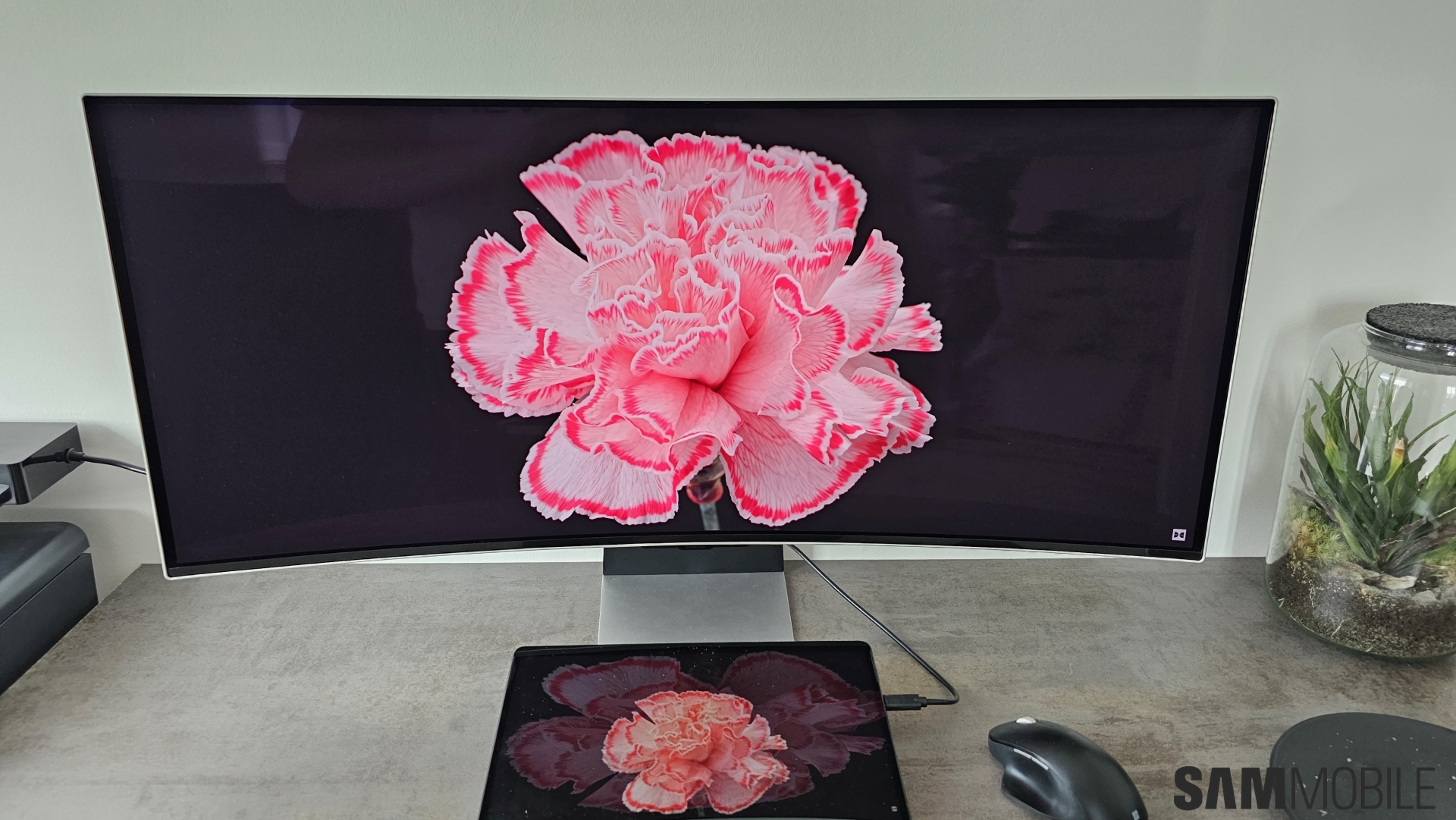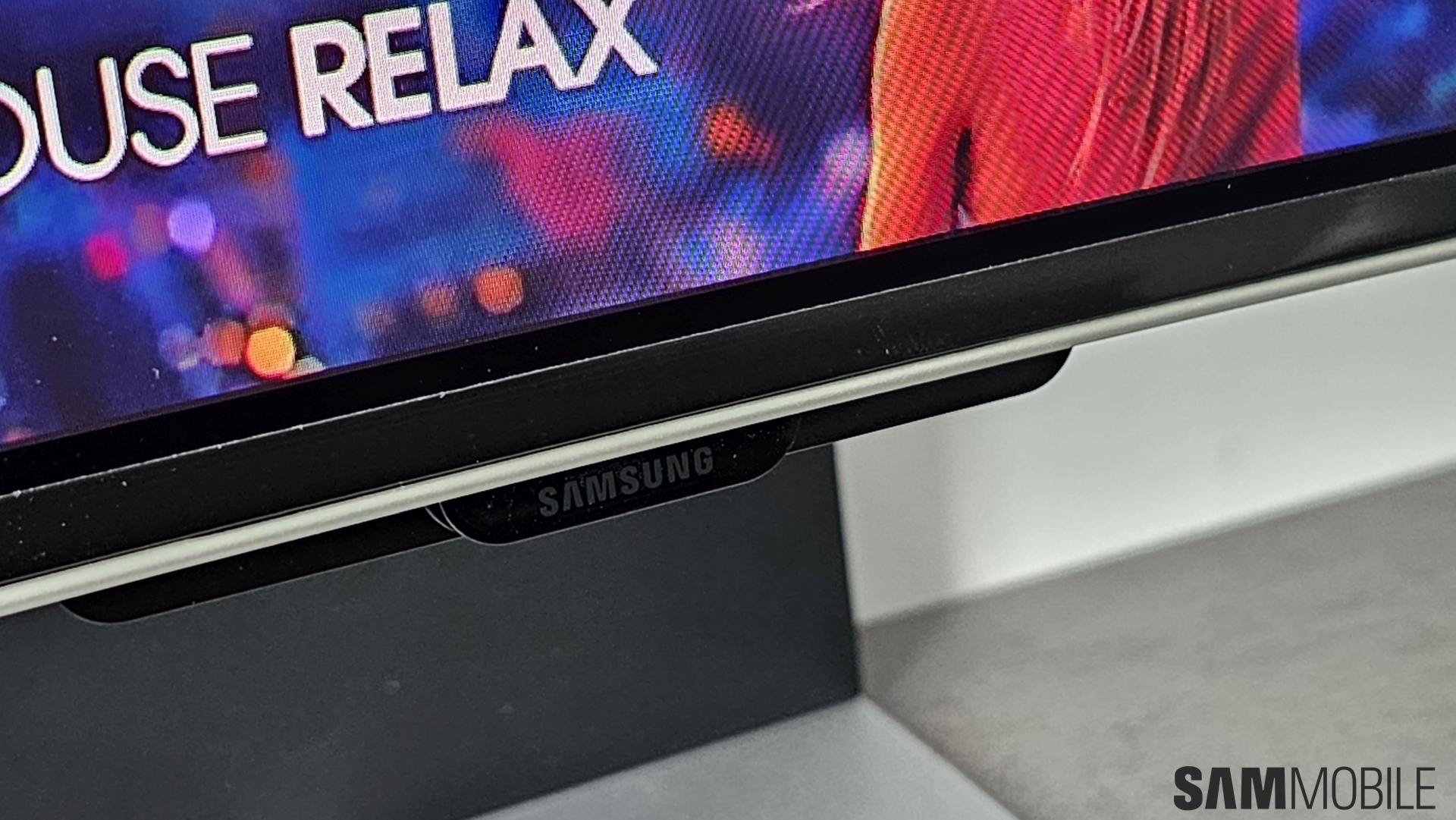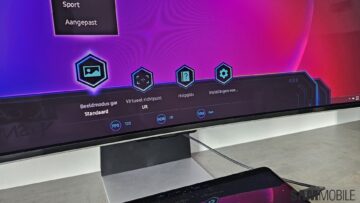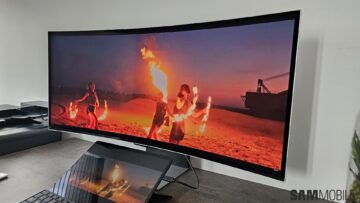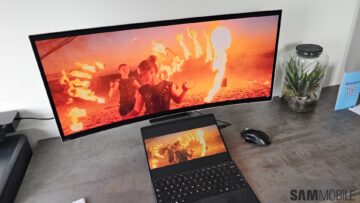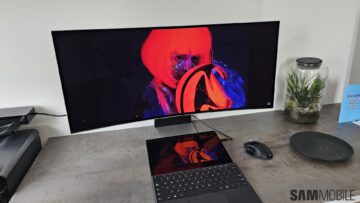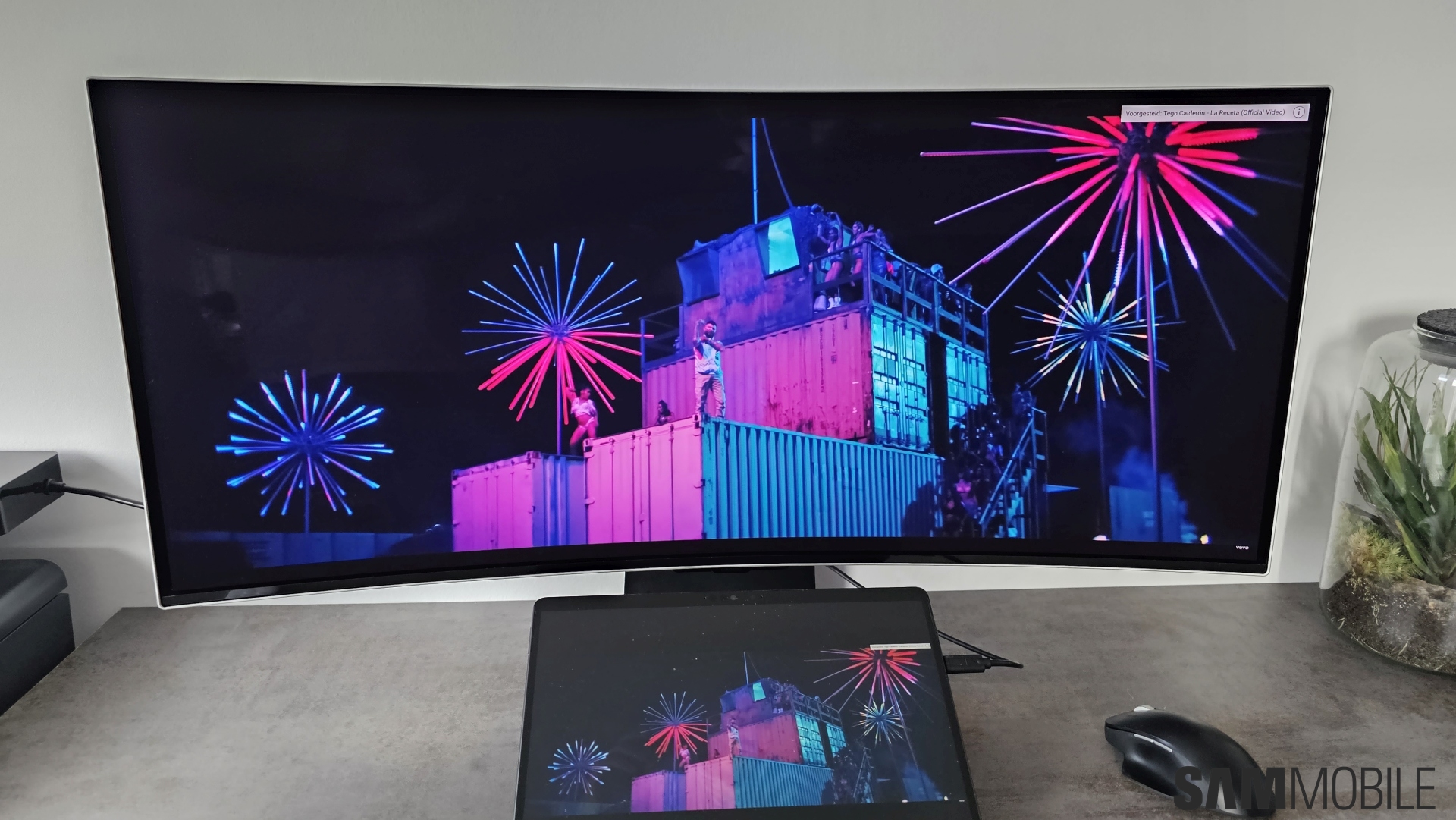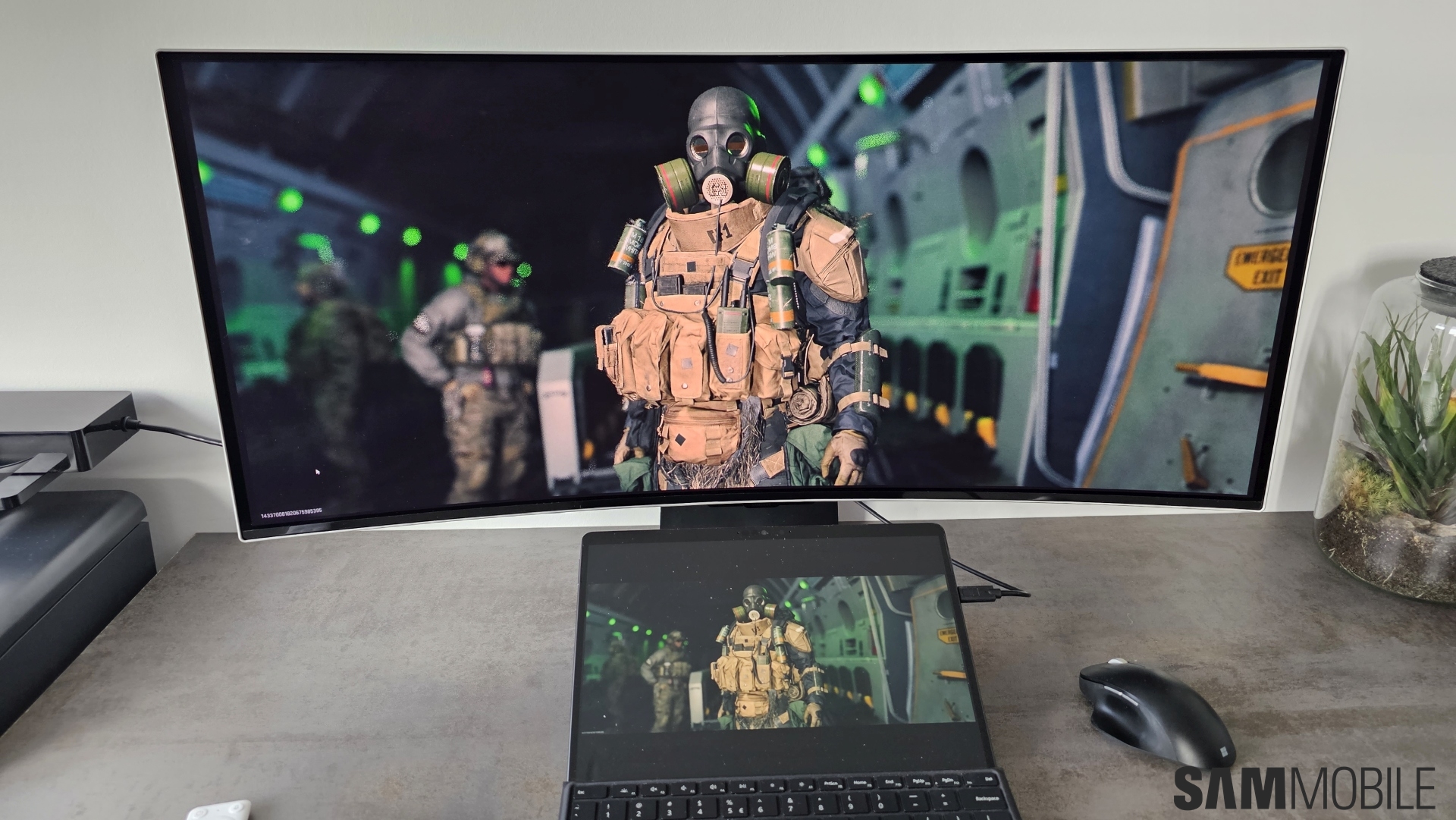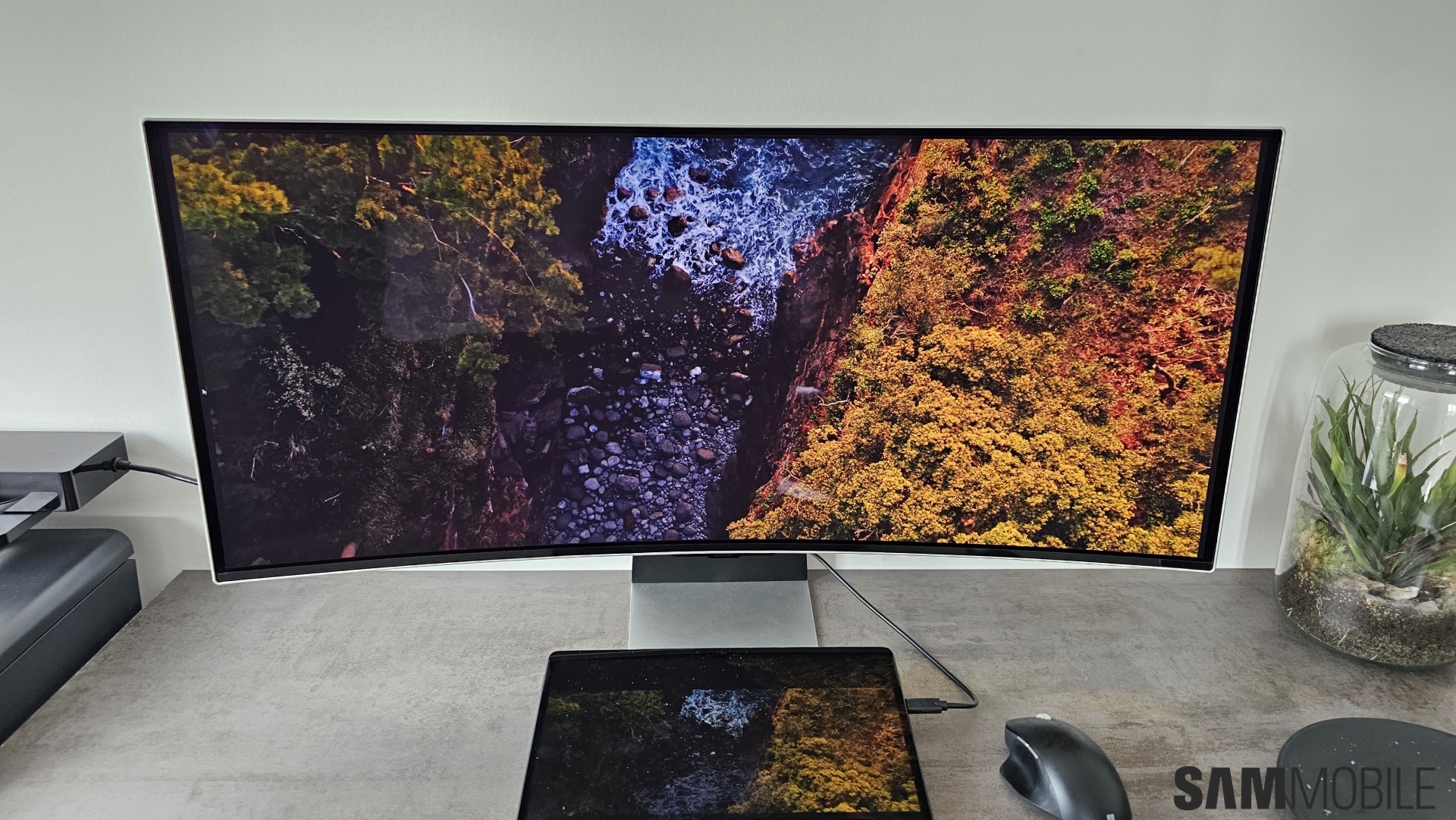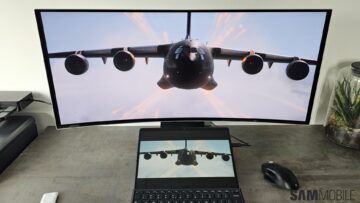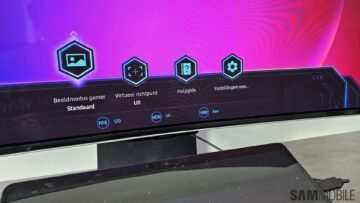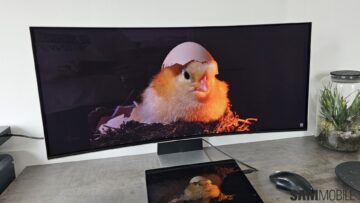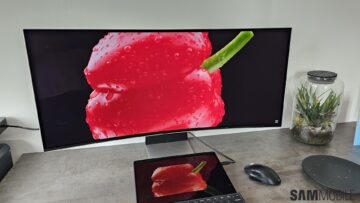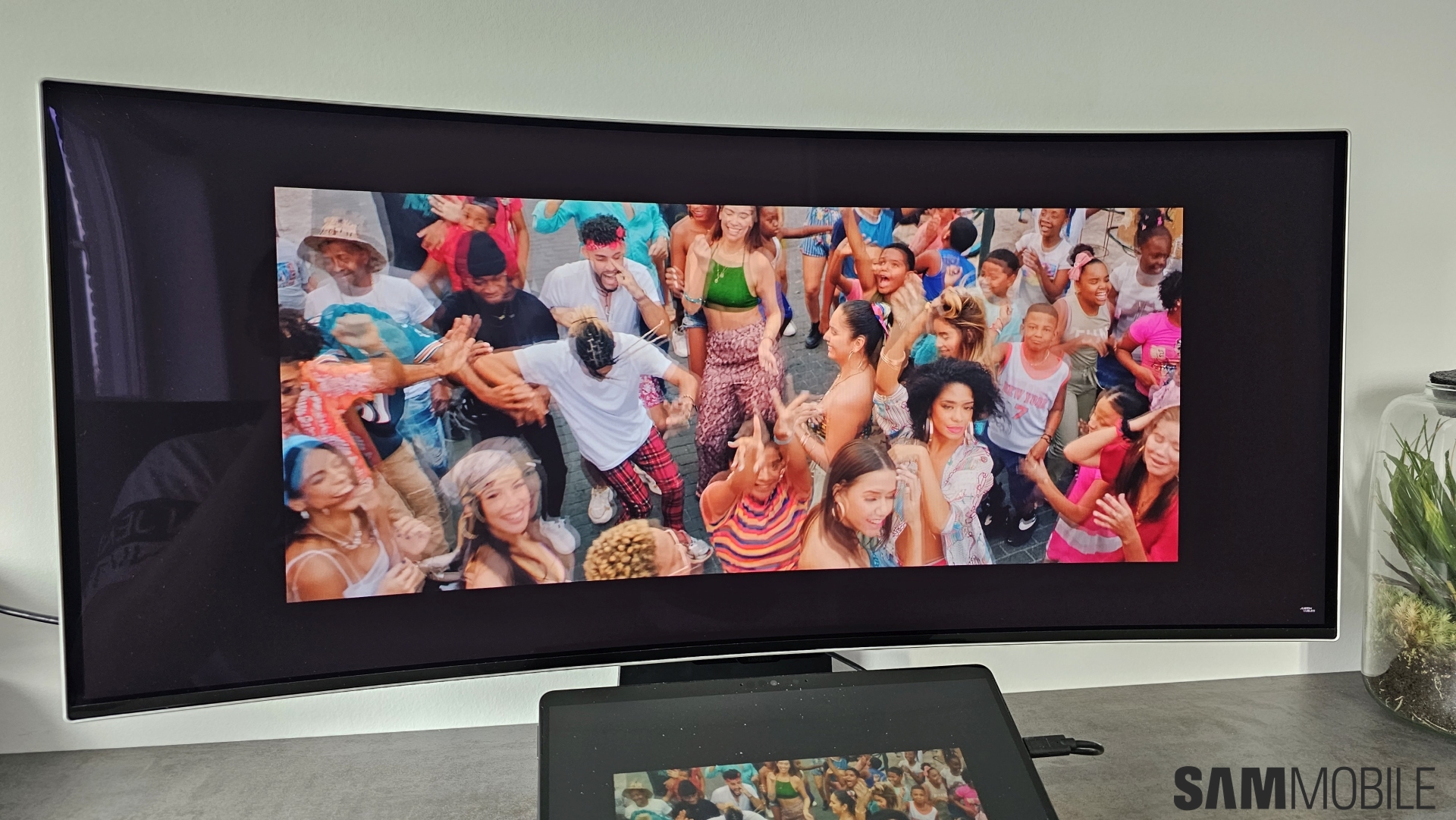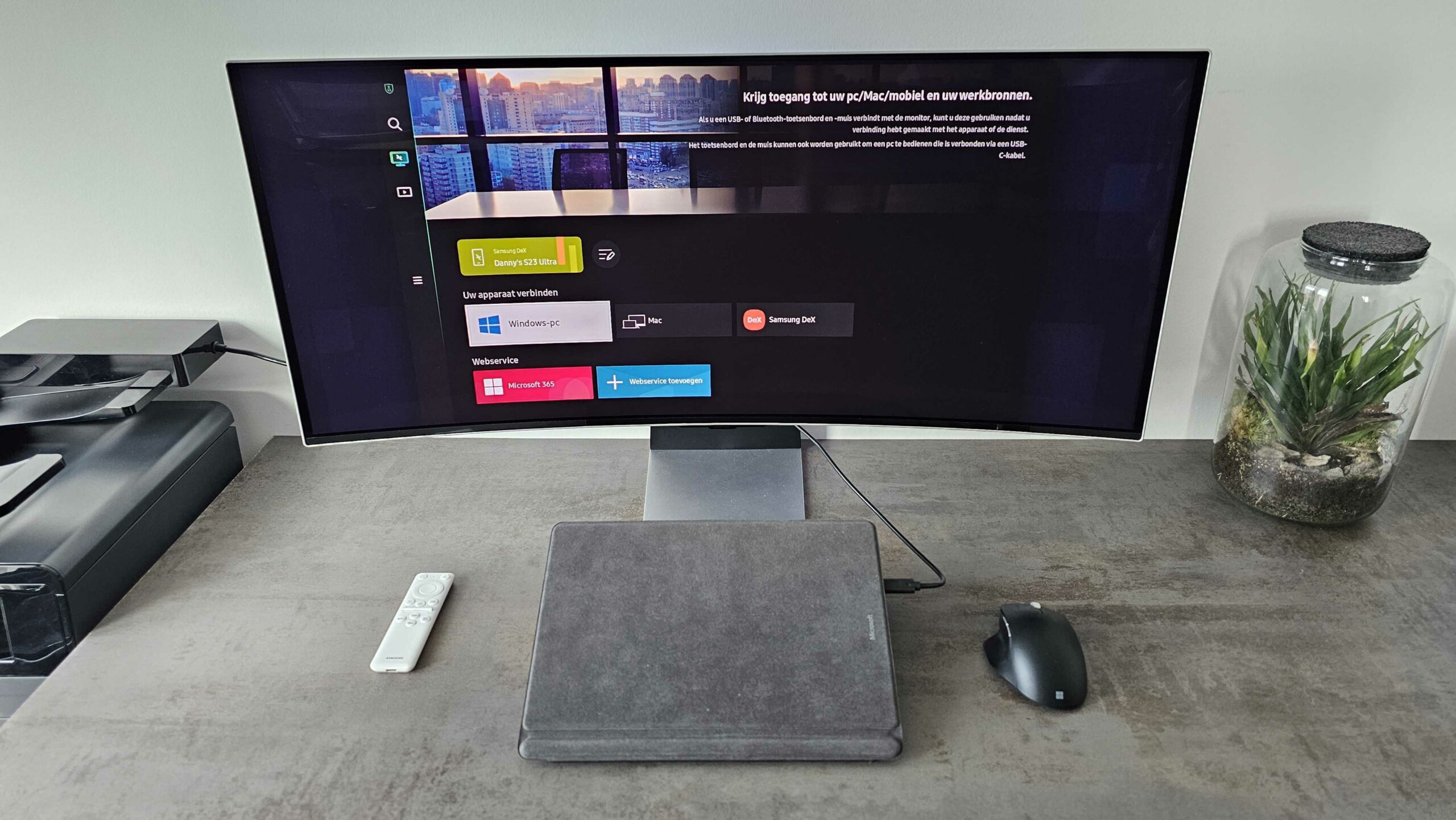
If you've had your eye on this monitor and would like to know if it's worth the $1,500 asking price, keep reading this Samsung Odyssey OLED G8 review to find the answer.
Design and build quality
The 34-inch Odyssey OLED G8 is certainly one of the better-looking monitors that we've seen from Samsung. The thin and sleek with only a small bezel strip at the bottom. This is as edge-to-edge as they come. You've got love the light orb at the back, it add an element of funkiness to the monitor. Below it you'll find the various connectivity ports.
The stand is a mix of metal and plastic but don't let that fool you. It feels properly sturdy and its minimal design means that it doesn't take up a lot of space. There's height and tilt adjustment, enabling you to set it at just the right angle. VESA mounting is supported as well.
A 1.5m mini-DisplayPort to full-sized DisplayPort cable is included which you can simply plug into your GPU. However, it would have been better to get a full-sized DisplayPort and HDMI port since good quality mini-DP and micro-HDMI cables are difficult to find, particularly if you need cables of a longer length.
There's really a lot to like about the Odyssey OLED G8. However, something we don't like is that while monitors with similar panels from other companies have an integrated power supply, the Odyssey OELD G8 has an external power brick, and that doesn't quite blend in with the overall modern and sleek look of the monitor.
The silver color of the shell itself and the stand contrast the black display panel but we'd much prefer a matte black version. Not only would that minimize the presence of the bezel but also give the monitor a more understated look overall.
Connectivity
The connectivity ports include one mini-DisplayPort, one micro-HDMI port in addition to two USB-C ports that support USB PD, which means they can charge plugged-in devices. The placement and proximity to the stand makes it difficult to use a micro-HDMI adapter as there's not much space there. The cable will have to be bent and stretched which would make it prone to breaking.
We did like how easy it is to hook up a Bluetooth soundbar to the monitor to get an elevated audio experience. It's also quite simple to pair the monitor with a smartphone and connect to the internet. The support for Bixby, Alexa, and Samsung's SmartThings platform is an added incentive. It can be used to control various smart home devices with ease.
Display quality
There's much to write home about the 34-inch 3440 x 1440 QD-OLED panel with 1800R curvature and 21:9 aspect ratio in this monitor. It has an impressive 175 Hz maximum refresh rate and a 0.03ms response time. There's support for adaptive sync as well. This panel is known to have a peak brightness rating of 1,000 nits, but Samsung isn't claiming that in the specs for this monitor.
We ran a UFO test to accurately measure the refresh rate and find any ghosting or overdrive artifacts. There was no noticeable ghosting or trailing. Simply put, the display quality is perfect with true blacks and rich colors. The viewing angles are exceptional. You hardly feel that there's any distortion when looking at the display from different angles.
The colors are tuned very accurately straight out of the box. It didn't require much tuning to set them up to our liking. HDR is far more superior when compared to other Samsung monitors, it gels well with the razor-sharp picture quality.
It's pertinent to note that the subpixel structure isn't well-suited to productivity use. This panel has a triangle RGB layout, not the conventional RGB stripe, which can lead to fringing on high-contrast edges like text. Windows in particular isn't suited to this type of pixel arrangement as the fringing isn't easily addressed with software corrections.
Samsung DeX is supported for the wider aspect ratio when it's connected via a cable but you'll see black bars if you opt for wireless DeX. Then again, it's not the ideal desktop option for productivity, since OLED panels remain susceptible to burn-in and this monitor will be no exception.
Since this is a QD-OLED panel, it would have been nice if an ambient mode had been integrated as well. That would have further improved the viewing experience and elevated the monitor's rank even further among its competitors.
Entertainment
The Odyssey OLED G8 is equipped with Samsung's smart TV platform. You get access to features like the Gaming Hub through which it's possible to stream games via Xbox and GeForce streaming services. Entertainment apps like YouTube, Netflix, Hulu, etc are easily available as well. A remote control is included with the monitor which is a great accessory if you're using the monitor for watching content.
The monitor features 5W stereo speakers that are good enough. You can always use an external Bluetooth speaker and it's quite easy to connect one. The smart TV software is good and has some nice features, but it's slow and switching inputs requires navigating through multiple menus, and that doesn't happen nearly as fast or smoothly as it could.
The black bars in the UI are also evidence that the software isn't optimized for this wide monitor. It also seems that the software is a bit incomplete at this moment, as there are reference to other monitors in the UI.
For example, it doesn't know automatically which remote is being used and will show multiple names for you to select. It also asks to connect the smart webcam even though it's not compatible. Speaking of webcams, it would have been nice if the monitor came with an integrated webcam, so that game streamers don't need to buy one separately.
Verdict
Given that the Samsung Odyssey OLED G8 is $200 more expensive compared to other monitors from MSI and Alienware that use the same display panel, the question then becomes, is it worth it paying that premium? That largely depends on what you're going to use this Samsung monitor for. If you need something that can be both a great gaming monitor and a TV, then you basically get two for the price of one with the Samsung Odyssey OLED G8. The smart TV platform will give you access to all entertainment apps and even allow you to stream games, thereby eliminating the need to own a console.
If your use case is only productivity and office work then this isn't a suitable option for you. You won't be able to extract its true potential and with OLED burn-in remaining a possibility, buying it wouldn't be the sensible choice. If you want an exceptional gaming monitor that's well put together and doubles as an entertainment center, don't waste a minute, just go ahead and buy the Odyssey OLED G8.
Samsung Samsung Odyssey OLED G8
What we like
- Integrated Smart TV platform
- Excellent display quality
- Sleek and modern design
What we don't
- Lack of software optimization
- OLED burn-in potential
- External power brick












